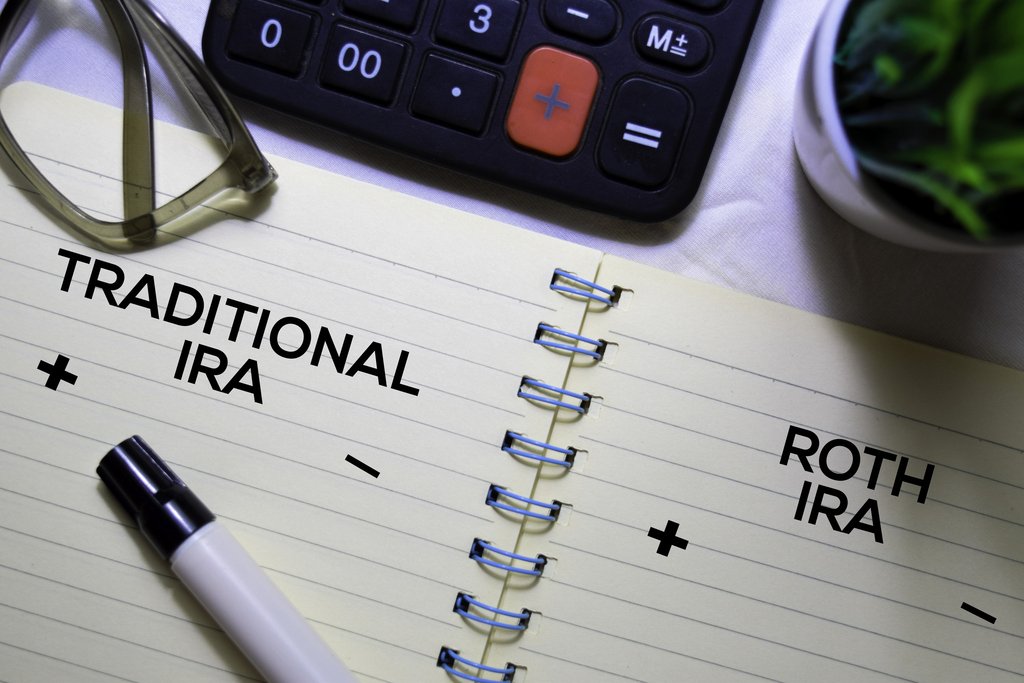
When you think of your major expenses, you might think of housing, healthcare, travel, or something else. But have you considered that taxes could be your biggest expense, even in retirement? There could be ways to reduce your tax burden today and tomorrow, including a Roth IRA conversion.
What is Roth IRA vs. a Traditional IRA?
Workers can contribute pre-tax dollars to a traditional IRA. When money is distributed, it’s taxed at ordinary income rates. In contrast, a Roth IRA is funded with after-tax dollars. A Roth IRA can be a valuable asset in retirement because qualified distributions are not taxed, unlike distributions from a traditional IRA. Roth IRAs are also not subject to required minimum distributions (RMDs), so funds can continue to grow tax-free.
You have the option to convert funds from a traditional IRA, 401(k), or similar qualified retirement account into a Roth IRA, no matter your income. In this case, you would pay tax on the funds converted and then be able to withdraw them tax-free later on, similar to a Roth 401(k). Another benefit of a Roth IRA is that it’s never subject to RMDs,[1] which have the potential to increase a retirees’ tax burden. Keep in mind that Roth IRA conversions are now irreversible and that money can’t be withdrawn penalty-free until five years after it’s converted, and typically not until age 59 ½.[2]
We Could See Higher Taxes Soon
Right now, many people are enjoying relatively low tax rates: In 1944, the highest income tax rate was 94%, and in 1978 the maximum capital gains tax rate was almost 40%.[3] The new proposed tax rate for long-term capital gains is 25%, instead of the current 20%. Additionally, the top bracket would go from 37% to 39.6%, and there is also a proposed new 3% surtax on Modified Adjusted Gross Income above $5 million for married couples and $2.5 million for single filers.[4]
We Could See Restrictions on Roth IRAs
Right now, anyone can do a Roth conversion, regardless of income, but this could change. House Democrats are proposing several changes, including prohibiting people with retirement accounts of more than $10 million from contributing more and prohibiting people making over $400,000 in taxable income from contributing to a Traditional IRA and from converting to a Roth.[5]
A Roth conversion could be one way to plan for the tax rates of the future. Ultimately, the right choice depends on your situation. There are many factors to consider, including your current income levels and tax situation, what you think your income and tax situation will be in the future, what tax policy changes end up happening, and your estate plan. We can look at all of the factors and help you decide on a path forward. Click HERE to schedule a complimentary retirement strategy session with SHP Financial to discuss any and all of your retirement planning needs.
[2] https://www.irs.gov/retirement-plans/designated-roth-accounts-in-plan-rollovers-to-designated-roth-accounts
[3] https://taxfoundation.org/federal-capital-gains-tax-collections-1954-2009/
[4] https://www.forbes.com/sites/johnjennings/2021/09/15/the-good-the-bad-and-the-ugly-what-house-democrats-tax-proposals-mean-for-the-wealthy/?sh=2983391e1c63
[5] https://www.cnbc.com/2021/10/19/heres-why-dems-proposed-elimination-of-roth-conversions-for-wealthy-doesnt-start-until-2032.html
The content presented is for informational purposes only and is not intended as offering financial, tax, or legal advice, and should not be considered a solicitation for the purchase or sale of any security. Some of the informational content presented was prepared and provided by Lone Beacon Media, LLC dba Lone Beacon, while other content presented may be from outside sources believed to be providing accurate information. Regardless of source no representations or warranties as to the completeness or accuracy of any information presented is implied. Lone Beacon Media, LLC is not affiliated with the Advisor, Advisor’s RIA, Broker-Dealer, or any state or SEC registered investment advisory firm. Before making any decisions you should consult a tax or legal professional to discuss your personal situation.
Investment Advisory Services are offered through SHP Wealth Management LLC., an SEC registered investment advisor. Insurance sales are offered through SHP Financial, LLC. These are separate entities, Matthew Chapman Peck, CFP®, CIMA®, Derek Louis Gregoire, and Keith Winslow Ellis Jr. are independent licensed insurance agents, and Owners/Partners of an insurance agency, SHP Financial, LLC.. In addition, other supervised persons of SHP Wealth Management, LLC. are independent licensed insurance agents of SHP Financial, LLC. No statements made shall constitute tax, legal or accounting advice. You should consult your own legal or tax professional before investing. Both SHP Wealth Management, LLC. and SHP Financial, LLC. will offer clients advice and/or products from each entity. No client is under any obligation to purchase any insurance product.





